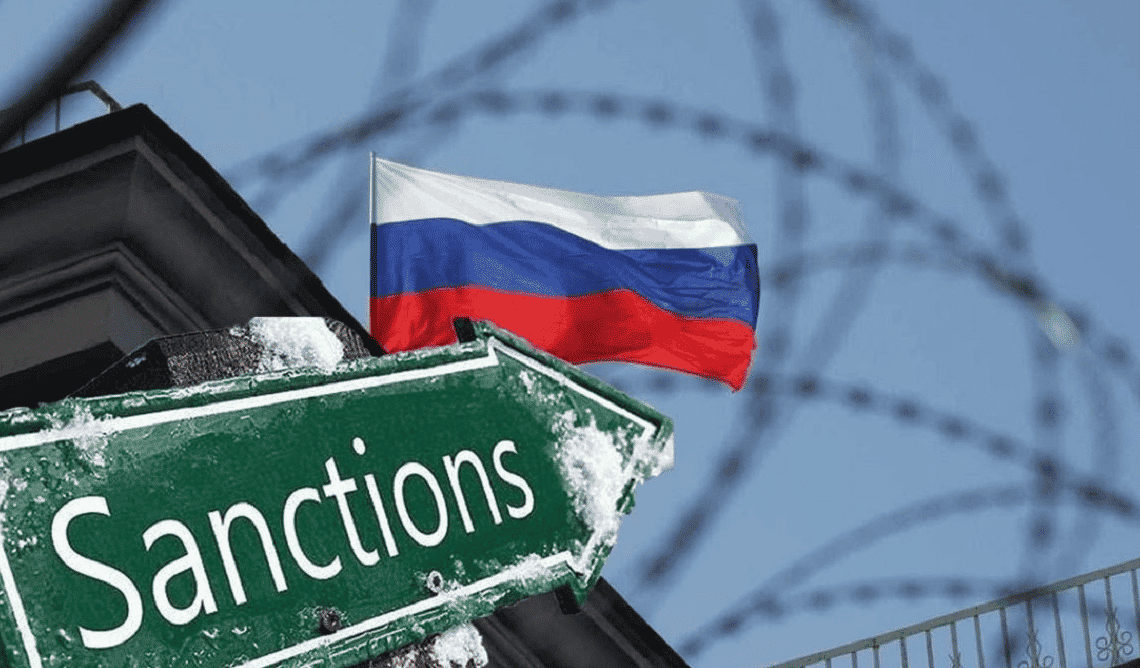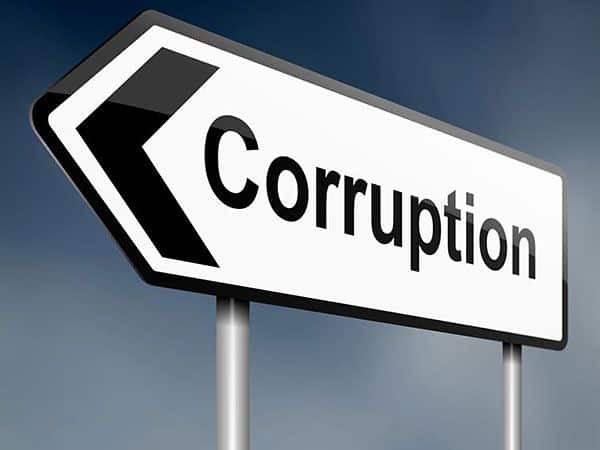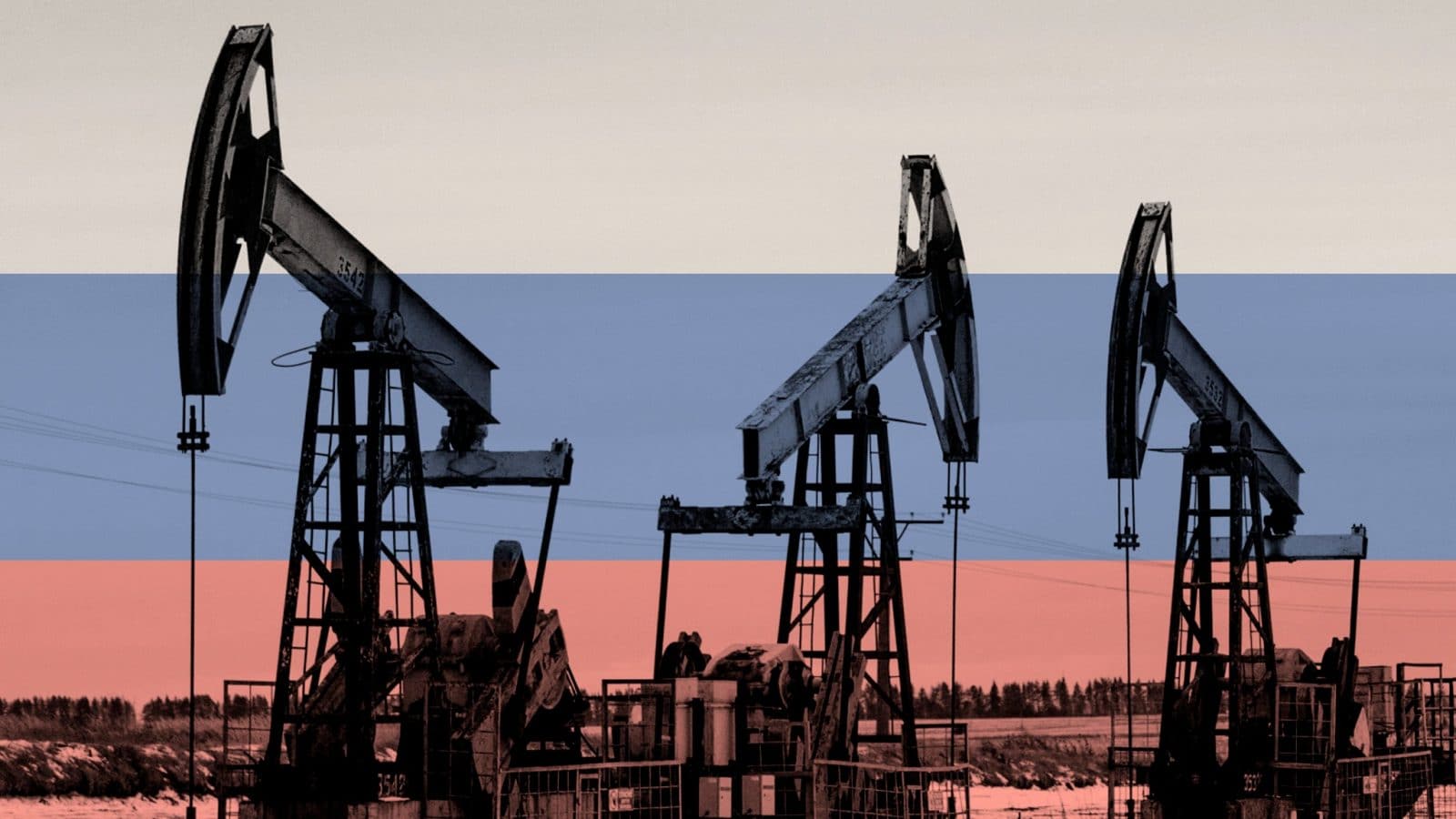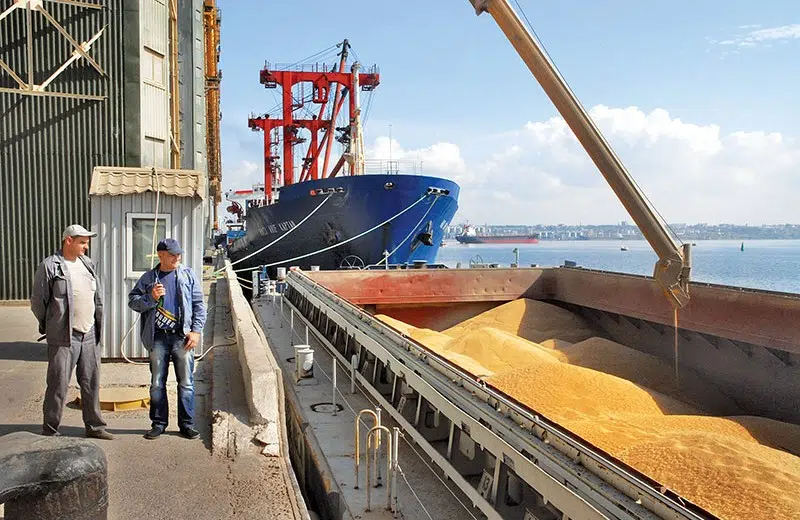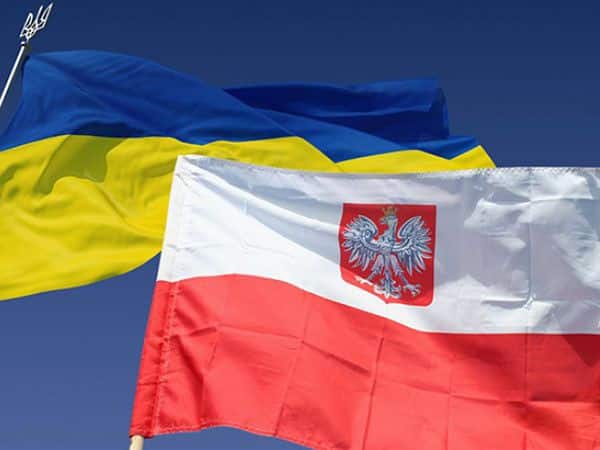Table of Contents
Over the past year, European Union countries have refused or restricted imports of Russian oil and oil products, coal, and natural gas. These are the main but by no means the only, sources of revenue for the Kremlin.
If we do not take into account the sensitive issues of grain and fertilizer sales, there are a number of other Russian goods that are not usually mentioned in sanctions packages. We are talking about metals and precious stones.
According to the estimates of Economicha Pravda, the export of these two types of goods to Western countries still brings an additional $20 billion per year to the aggressor country.
These revenues are spread across a dozen different types of metals and precious stones, but through these small pieces, Russian companies gather tens of billions of dollars to finance the war in Ukraine.
Diamonds for Belgium
According to UN Comtrade data, in 2022, the Russian Federation supplied diamonds to the Western market for nearly $1.5 billion. 95% of this amount was accounted for by buyers from Belgium – home to the world’s largest diamond hub in Antwerp. The so-called diamond district of this city serves as a gateway for diamonds from around the world.
Not all diamonds in Belgium are Russian. Only 25% of the supply of precious stones is accounted for by Russia, but the European Union has not imposed any restrictions on the supply of this product so far.
Representatives of the diamond industry in Antwerp are against sanctions because they claim that rejecting Russian precious stones would lead to bankruptcy for small traders and the loss of 10,000 jobs.
In 2022, while speaking in the Belgian Parliament, President Volodymyr Zelenskyy attempted to convince local authorities that “peace is more valuable than any diamonds.” The Belgian government assures that it does not block the imposition of an embargo. However, in every sanctions package, this country manages to avoid measures against Russian diamonds.
Belgian money from diamond sales goes to the Alrosa group, controlled by the Russian government. The group is one of the major sources of funding for the Kremlin’s war against Ukraine.
Alrosa continues to evade Western sanctions. Canada, Australia, New Zealand, the United States, the United Kingdom, and Japan have imposed restrictions only against the leadership. Meanwhile, the EU and Switzerland are not rushing to even introduce personal sanctions against the directors.
See also: Russia plans to create a new «elite» aviation group Storm with direct subordination to Moscow
Previously, Alrosa paid taxes for the use of its fields to the budget of its region (the Republic of Sakha), but in 2023, the State Duma of the Russian Federation raised them and ordered to collect half of them to cover the federal budget deficit.
In addition to mobilizing Alrosa resources for the needs of the war, the group supports the maintenance of a submarine that bears its name. The diesel-electric submarine Alrosa is part of the Russian Black Sea Fleet and serves as a carrier for Kalibr missiles.
Alrosa is not just a money source but also a geopolitical tool for Putin’s conquest of Africa. The group has diamond mines in Angola, Zimbabwe, and the Democratic Republic of the Congo, and has an eye on the Central African Republic, where Russian mercenaries from the Wagner Group are already active. An influence over local politicians comes along with Russian investments in these countries.
Despite this, Belgium continues to pour money into Alrosa. Last year, the Belgians reduced the import of Russian diamonds, but only by a quarter.
In Antwerp, there is concern that if an embargo is imposed, Russians will redirect their diamonds to competing hubs in India, the UAE, and Israel.
“If Belgium agrees to sanctions, it will seek to coordinate the embargo against Russian diamonds with other Western countries. The plans include creating a system to trace the origin of diamonds and prohibiting countries from purchasing diamonds from Russian sources. Then, Indian and Arab hubs won’t be able to profit from the sale of toxic Russian diamonds, while Belgium will benefit from selling ‘ethical’ diamonds,” said Svitlana Taran, an analyst at the Kyiv School of Economics, speaking at the Economicha Pravda.
According to the Financial Times, Belgium has allegedly agreed to impose sanctions; however, according to Ukrainian representatives, the final decision has not been made yet.
“In the draft of the 11th sanctions package, shown on May 9th, there is no mention of an embargo on diamonds,” said a spokesperson of Economicha Pravda, familiar with the content of the latest sanctions package against Russia.
While Belgium and the European Union negotiate, Russia gains time to establish its presence in the markets of India and the UAE. With each passing day of delay, the potential embargo loses its significance.
Platinum for Western automakers
Russia also sells platinum group metals. In 2022, their export to Western countries brought Russians $3.8 billion. Unlike diamonds, there is no discussion about imposing an embargo on them at all.
The highest revenues for Russians come from the sales of platinum and palladium. The main buyers in the West include the United States, the United Kingdom, Germany, and Italy.
The main profits are earned by two Russian companies, Russian Platinum and Norilsk Nickel. The latter is one of the favored “toys” of Putin’s oligarchs.
Norilsk Nickel is controlled by the second richest person in Russia, Vladimir Potanin. This company is among the top five largest taxpayers in Russia, and Potanin himself is an oligarch with close ties to Putin. The second major shareholder of Norilsk Nickel is Oleg Deripaska’s company, Rusal, who has been involved in scandals related to Russia’s interference in the United States’ elections.
Both oligarchs are currently under personal sanctions by several countries. However, each of them owns a stake of less than 50% in Norilsk Nickel, so these sanctions do not apply directly to the company itself.
As of now, the European Union, Switzerland, and Japan have not imposed personal sanctions against Potanin. Japan also does not impose restrictions on Deripaska.
The possibility of impacting Norilsk Nickel through sanctions exists. According to sources within the company, in 2022, the management faced a shortage of Austrian equipment. As a result, they were forced to seek alternative suppliers of “questionable quality” equipment, which cost 70% more.
Flight bans and the strengthening of the ruble have affected logistics chains and forced the company to seek additional working capital. In 2023, Norilsk Nickel may reduce platinum production by 1-7% and palladium production by 7-14%. For the first time in 15 years, the company’s board of directors recommended shareholders not to pay dividends for the year 2022.
However, it seems that the Russian metallurgical industry giant has managed to avoid a catastrophe. The company is gradually shifting its focus to China and continues to generate income in Western markets, thereby financing the federal budget.
So far, only the United States and the United Kingdom have taken steps to reduce Russian platinum revenues. These countries have imposed additional tariffs but have not introduced an embargo.
Non-ferrous metals for the EU
In 2022, the sales of aluminum and copper to Western countries brought Russia $6.7 billion. Almost all of the metal was exported to European Union countries. The major beneficiaries remain the same: Rusal, Norilsk Nickel, and Ural Mining and Metallurgical Company, owned by Andrei Kozitsyn, who is a member of the ruling party United Russia.
These metals are used in the production of electric vehicles, so the demand for them is constantly increasing.
The European Union continues to import copper and aluminum from the aggressor country, Russia, although it is not heavily dependent on it. Only 8% and 17% of their respective imports come from Russia.
At the same time, Russia exports a quarter of its aluminum and about a third of its copper to the EU. Therefore, a potential embargo would impact Russia more than the European Union.
The only significant dependence is on Russian nickel, which accounts for nearly half of the EU’s imports and brings the aggressor country $3.8 billion in revenue. Finland is the largest purchaser of this metal, where Norilsk Nickel has established its subsidiary processing plant, Nornickel Harjavalta.
Titanium for the US and Germany
In 2022, Western countries purchased Russian titanium for $365 million. The largest volumes are acquired by aircraft manufacturers Airbus and Boeing for their facilities in the United States and Germany.
The company VSMPO-AVISMA, which receives Western funds from titanium sales, serves the Russian military industry. It supplies titanium for the construction of armored vehicles, combat aircraft, and missiles.
The VSMPO-AVISMA enterprises are strategic for the Russian defense industry, so sanctions should have been imposed on the company as an arms manufacturer. However, currently, only Ukraine has done so.
In 2022, Russian titanium was removed from the sanctions list at the last moment because it was desired by the countries producing Airbus aircraft.
American Boeing itself has chosen to discontinue the use of Russian titanium. Airbus also intends to do the same. To achieve this, the European aviation giant, along with its partners, acquired the French titanium supplier Aubert & Duval. However, country-level prohibitions have not yet been imposed, so the supply continues.
Steel and iron for everyone
The Russian ferrous metallurgy industry has been subjected to sanctions multiple times, but Western countries still cannot completely eliminate their reliance on Russian iron, steel, ore, and ferroalloys. In 2022, these goods were sold to them for $5.3 billion.
The largest producer of iron in Russia is Novolipetsk Iron and Steel Works, owned by oligarch Vladimir Lisin. In December 2022, Times journalists discovered that Lisin’s company had supplied steel for Russian nuclear weapons.
See also: Who supports Russia in France?
Despite this, Lisin and his company have not yet been subjected to Western sanctions, and Russian iron and ferroalloys remain outside the embargo. They account for 28% and 4% respectively in the EU’s import structure.
Currently, sanctions against Vladimir Lisin have only been imposed by Ukraine and Australia.
The European Union has reduced its import of Russian iron ore by four times, but it still purchases some. In 2022 alone, the EU paid Russia $600 million for iron ore. However, the share of Russian ore in the EU’s imports is insignificant, accounting for only a few percentage points.
In the eighth package of sanctions, the European Union imposed an embargo on the import of Russian ferrous metals, but it will only take effect from September 30, 2023, and for certain positions, it will begin in 2024.
The decline in steel production in Russia in 2022 did not meet the expectations of countries that imposed sanctions. According to GMK Center, the World Steel Association forecasted a 20% decline in April 2022, but the reduction was only 7%.
Time matters
Critics of escalating sanctions argue that Russia is reorienting all its goods towards Asia and will still generate revenue regardless. According to Taran, India and China will not fully replace the wealthy and geographically proximate market of G7 countries, so this assertion of substitution is incorrect.
Sanctions remain a powerful tool if implemented without exceptions.
The timing of imposing embargoes also matters. The longer the delay in their implementation, the more time Russia gains to partially redirect its goods to Asian markets. Revenue from Western countries also enables Russians to finance the “war budget” during its most intense period.
Despite the sanction pressure, Russia’s extraction and processing industry continues to increase the production of specific goods, as noted by Lidia Lisovska, an analyst from the project “Russian assets as a source for Ukraine’s economic recovery.”
In the first quarter of 2023, the production of stainless steel ingots in Russia reached 132.6% compared to the same period in 2022. There has been a significant growth in the output of lead concentrates, alloy steel ingots, silver powder, aluminum wire, untreated titanium, zinc, and magnesium.
Ukraine could push the West towards an embargo on Russian metals and precious stones by offering its own goods to the European market. Former Minister of Ecology and Natural Resources, Ostap Semerak, suggested that Ukraine could provide uranium, titanium, ore, and ferroalloys.
“If Ukraine is included in strategically important production chains, it can compel Germans and French to be more concerned about our defense. For this, government officials need to propose specific investment projects. Investors won’t come on their own,” believes Ostap Semerak.
In 2022, thanks to resource mobilization and investments in infrastructure, the European Union was able to quickly reduce its dependence on a significant portion of Russian gas, even though it accounted for 40% of its consumption.
A similar “miracle” can be achieved with several other non-sanctioned goods if the allies pay proper attention to it.
“So far, we do not see the readiness of our partners to fully sanction Russian diamonds, platinum, non-ferrous metals, and аerrous metallurgy. These are billions of dollars in revenue that are used to create Russian weapons. To cut off these flows, joint decisive actions are needed, not delays or exceptions,” said Vladyslav Vlasiuk, an advisor to the President’s Office.
Originally posted by Economichna Pravda, translated and edited by the UaPosition – Ukrainian news and analytics website
See also: How “Russian peace” is being built in Turkey and how it threatens Ukraine’s partner

